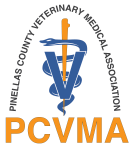PET PHOTOS WITH SANTA
Bring your pets to Pinellas County Animal Services this Saturday, Dec. 6 between 10 a.m. and 2 p.m. for a special photo opportunity with Mr. and Mrs. Claus. You will receive a high quality digital photo with a $20 donation to our Animal Welfare Trust Fund.
We hope to see you there! I would also like to wish everyone happiness and peace this holiday season!
Jennifer Renner, B.Sc., CPM (she/her)
Interim Director – Community Outreach & Volunteer Program Manager
Animal Services – Pinellas County Government
12450 Ulmerton Rd – Largo, FL 33774
jrenner@pinellas.gov office 727-582-2636


